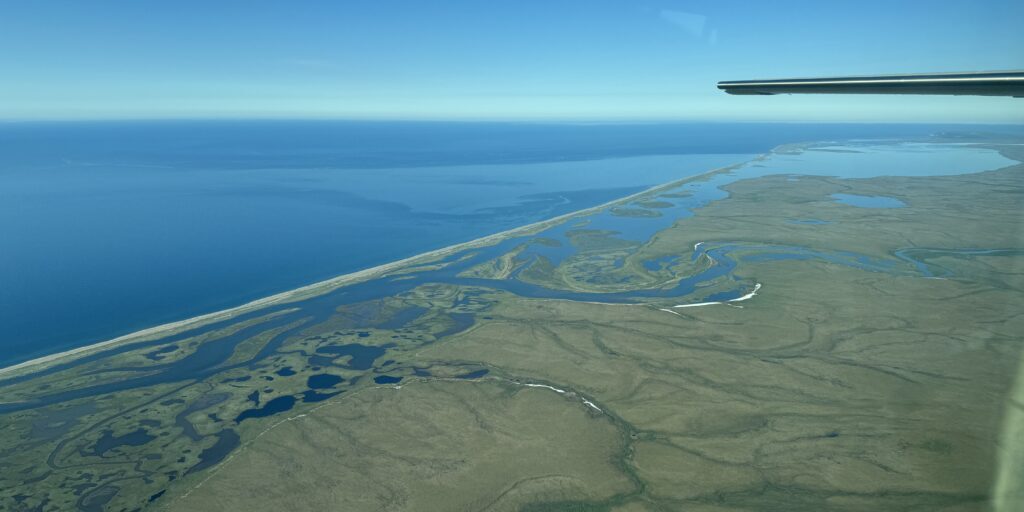The Alaska Department of Natural Resources (DNR) denied IPOP, LLC’s application for permits to mine (APMA) in the Bonanza Channel, citing concerns over environmental impact, lack of sufficient exploration data, and potential violations of reclamation standards.
In a decision issued March 11, 2025, DNR said that the proposed placer gold mining project—using a large cutterhead suction dredge—would be the largest contemporary placer operation in the state by volume. The agency determined that IPOP’s plan failed to meet necessary requirements for responsible resource development.
The Bonanza Channel, located east of Nome, is classified as wildlife habitat land under the Northwest Area Plan for State Lands. DNR noted that the project would take place primarily in navigable waters, which are subject to stringent environmental protections.
The decision document said the agency received 51 public comments on the proposal, all opposing the mining operation.
DNR officials expressed skepticism about IPOP’s claims of high gold concentrations in the area, highlighting that the company’s estimated gold grade of 49 grams per cubic meter was significantly higher than any known deposits in the region. The agency cited inadequate sampling methods and lack of independent verification as major concerns.
The decision also raised issues with IPOP’s reclamation plan. The company’s estimated reclamation cost of approximately $943,777 was deemed insufficient to cover potential environmental restoration if the project were to proceed. DNR determined that IPOP had not demonstrated a viable path to prevent unnecessary degradation of land and water resources, as required by Alaska state law.
Despite multiple application amendments since 2018, DNR ultimately found that IPOP’s proposal did not meet regulatory and statutory requirements. The agency’s ruling aligns with previous concerns raised by state and federal entities, including the Alaska Department of Fish and Game and the U.S. Army Corps of Engineers.
In the decision’s Conclusions of Law section, the agency cited the state’s Public Trust Doctrine that “holds that the state, as trustee, must manage navigable waters and the lands beneath them for the benefit of all Alaskans.” The agency concluded that “given the lack of sufficient data and the speculative nature of the proposal, approving IPOP's project would be inconsistent with the Division's public trust responsibilities and would violate the legal principles set forth in the Alaska Constitution and Alaska state Statutes.”
IPOP has not yet announced whether it will appeal the decision. This story will be updated as we learn more.




